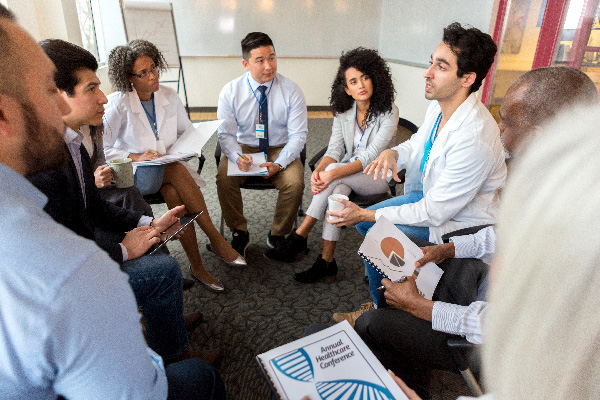Contact: Bill Riley | briley@medadvgrp.com
 Medical Advantage to Speak at 2017 Michigan Rural Health Conference
Medical Advantage to Speak at 2017 Michigan Rural Health Conference
ANN ARBOR, Michigan, May 4, 2017 – Medical Advantage is a participant at the Michigan Rural Health Conference which takes place at the Soaring Eagle Casino & Resort, Mt. Pleasant, MI, May 4-5. As part of the conference, Medical Advantage Senior Practice Transformation Coach Debbie Rozanski, shall present The Business Case for Chronic Care Management and the Ambulatory Care Practice. The company will also sponsor a booth in the exhibit area.
Ms. Rozanski’s presentation will discuss Chronic Care Management services and how they can impact practices. She will highlight strategies for identifying eligible populations, and discuss best practices to effectively bill and code for CCM services.
“CMS recognizes Care Management as one of the critical components of primary care that contributes to better health”, said Debbie Rozanski, Medical Advantage. “An effective Chronic Care Management strategy helps providers reduce hospital admissions and lessens the need for high cost medications across their patient population.”
About Medical Advantage
Medical Advantage is an industry leading practice transformation company that maximizes physician success in value-based care programs. Services include: CPC+ solution, EHR Services, practice transformation, PCMH, population health management solution, and more. Working within any size practice or organization, we bring insight, knowledge, and expertise right to the practice, while empowering care teams to provide better care. The result – personalized solutions that decrease the cost of care and improve quality. To learn more, visit www.medicaladvantage.com or call 800.594.6115.
About Michigan Center for Rural Health
Established in 1991, the Michigan Center for Rural Health (MCRH) is one of only three non-profit State Offices of Rural Health (SORH) in the country. As Michigan’s SORH, MCRH plays a key role in rural healthcare by assisting in the creation and implementation of partnerships among organizations, health departments, hospitals, government and academia. Those collaborations and alliances go on to create new opportunities in the areas of network development, quality of care, emergency medical services, continuing education, and recruitment and retention of rural healthcare providers.
###





